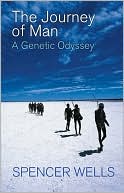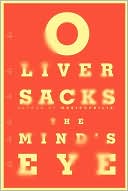The Journey of Man: A Genetic Odyssey
Search in google:
"Written with much verve, easy to read, and up-to-date on many important developments."—Luigi Luca Cavalli-Sforza, Stanford University, author of The History and Geography of Human Genes and Genes, Peoples, and Languages."Spencer Wells, whose genetic work has contributed to our understanding of human prehistory, has provided the lay reader with an account of the spread and mixing of the human species from its origin in Africa that is both scientifically accurate and accessible to the nonscientist. In achieving that accessibility, he has not made the common error of confusing simple explanations with simplistic ones. Most important, Wells has the intellectual integrity, all too rare in popularizations of science, to distinguish what is really known from what is only speculation."—Richard Lewontin, Harvard University, author of It Ain't Necessarily So: The Dream of the Human Genome and Other Illusions. Publishers Weekly In this surprisingly accessible book, British geneticist Wells sets out to answer long-standing anthropological questions of where humans came from, how we migrated and when we arrived in such places as Europe and North America. To trace the migration of human beings from our earliest homes in Africa to the farthest reaches of the globe, Wells calls on recent DNA research for support. Clues in the blood of present groups such as eastern Russia's Chukchi, as well as the biological remnants of long-extinct human clans, allow Wells to follow the Y chromosome as a relatively unaltered marker of human heritage. Eventually, working backward through time, he finds that the earliest common "ingredient" in males' genetic soup was found in a man Wells calls the "Eurasian Adam," who lived in Africa between 31,000 and 79,000 years ago. Each subsequent population, isolated from its fellows, gained new genetic markers, creating a map in time and space. Wells writes that the first modern humans "left Africa only 2,000 generations ago" and quickly fanned out across Asia, into Europe, and across the then-extant land bridge into the Americas. Using the same markers, he debunks the notion that Neanderthals were our ancestors, finds odd links between faraway peoples, and most startlingly discovers that all Native Americans can be traced to a group of perhaps a dozen people. By explaining his terminology and methods throughout the book, instead of in a chunk, Wells makes following the branches of the human tree seem easy. 44 color photos, 54 halftones and 3 maps. (Feb.) Copyright 2003 Reed Business Information.
List of MapsList of FiguresPreface1The Diverse Ape12E pluribus unum143Eve's Mate414Coasting Away615Leaps and Bounds816The Main Line1007Blood from a Stone1228The Importance of Culture1469The Final Big Bang184Acknowledgements197Further Reading199Index of Pictures208Index214








